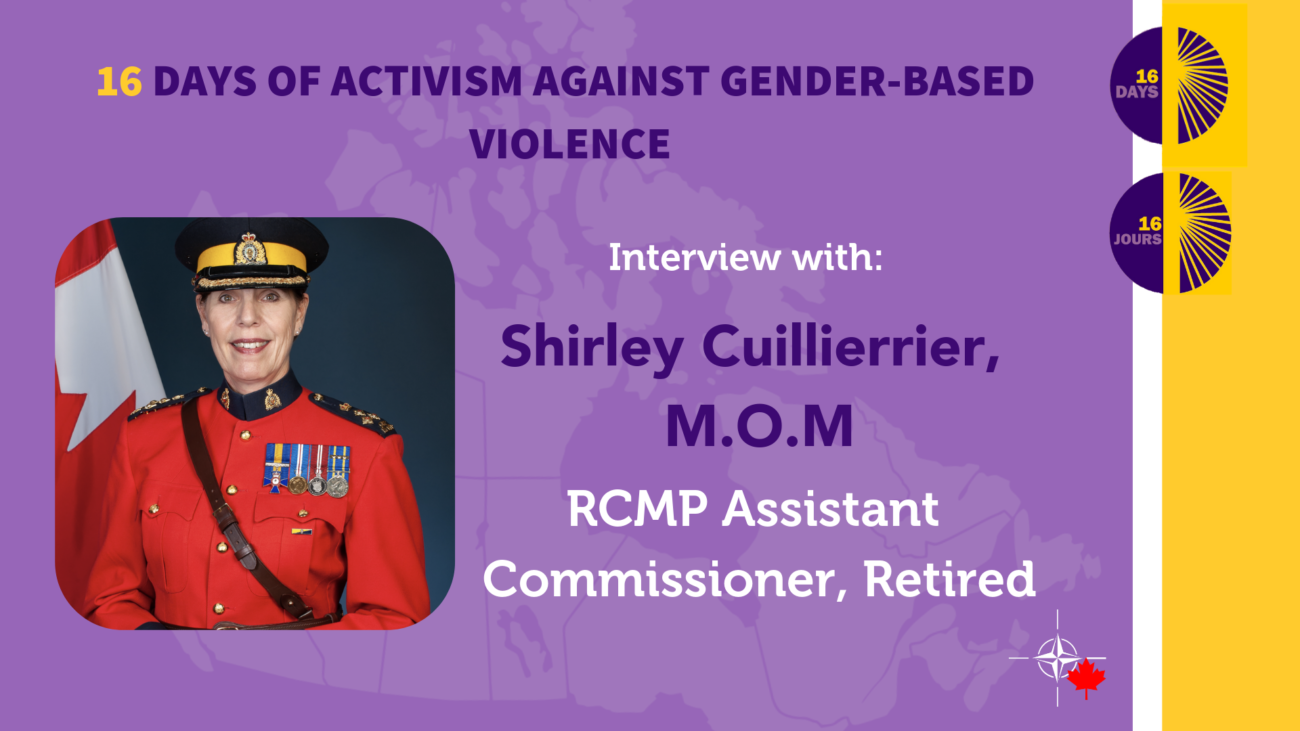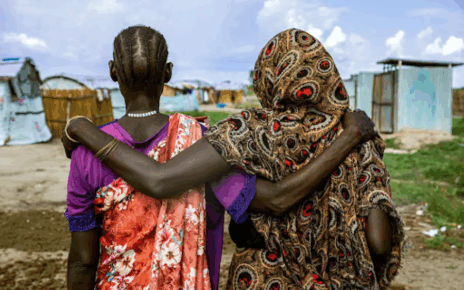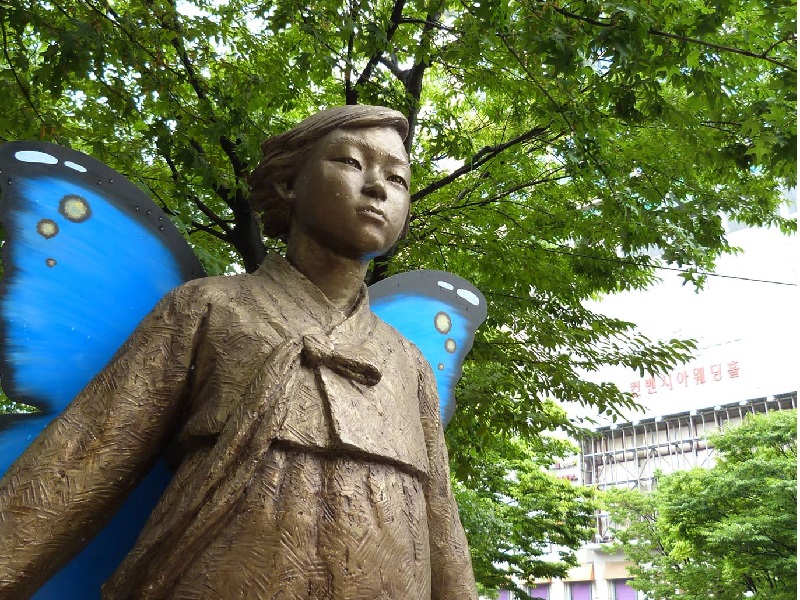Every year, from November 25th to December 10th, the NATO Association of Canada is proud to participate in the 16 Days of Activism Against Gender-Based Violence Campaign. This campaign highlights the need to address the violence that women face at all levels and in all arenas. This year, the focus is on ending gender-based violence in the workplace. This campaign provides a platform for raising awareness and it provides a forum for discussing strategies on how to effectively tackle this issue.
The NATO Association of Canada has compiled a series of interviews of some of Canada’s most high-profile women who discuss how to implement best practices in the workplace as well as the role women play in leadership positions.
About Shirley Cuillierrier:
A/Commr. Shirley Cuillierrier is a member of the Mohawk First Nations from Kanesatake, Quebec. She joined the Royal Canadian Mounted Police in 1982 in Montreal, Quebec, and spent 14 years in operational policing in Atlantic Canada before joining the Prime Minister’s Protective Detail in Ottawa, in 1996.
In 1998, she transferred to RCMP National Headquarters, where she performed a variety of operational duties in Contract and Aboriginal Policing Services. Following her commission in 2004, A/Commr. Cuillierrier, served as the Officer in Charge of National Aboriginal Policing Services and in 2007, was seconded to Indian and Northern Affairs Canada, as the National Director of Emergency Management. In recognition of her achievements she is the first Canadian recipient of the “Indian Country Law Enforcement Officer of the Year, 2007,” awarded by the International Association of Chiefs of Police and a Commanding Officer’s Commendation for outstanding service in Indigenous recruiting.
During her tenure in Federal Policing as the Officer in Charge of Immigration and Passport, she provided operational support to human smuggling investigations and led the National Human Trafficking Coordination Centre.
Throughout her career and as a volunteer in the community, much of A/Commr. Cuillierrier’s time has been devoted to supporting women and children of domestic violence. This included her work as a task force member of the Canadian Women’s Foundation examining the human trafficking of women and girls and currently a member of the Board of Directors for the Canadian Centre to End Human Trafficking.
Over the course of her career, A/Commr. Cuillierrier has embraced the need for transformational change to address the current and future experiences Indigenous Canadians face when involved in the criminal justice system, as survivors, families of victims, witnesses or offenders.
In January 2017, she was appointed the Senior Advisor on Reconciliation to advance and promote the principles of the Truth and Reconciliation – Calls to Action and to champion practical, every day acts of Reconciliation. This position was also responsible to lead the RCMP’s response to the National Inquiry on Missing and Murdered Indigenous Women and Girls.
A/Commr. Cuillierrier is the recipient of both the Queen Elizabeth II Golden and Diamond Jubilee Medals for her service to Canadians. In May 2017, she was appointed by the Governor General of Canada as a Member of the Order of Merit and October 2018, was a recipient of the Governor General’s award in Commemoration of the Persons Case for advancing gender equality.
A/Commr. Cuillierrier recently retired from the RCMP with 36 years of service and currently resides in Ottawa, Ontario. She is the proud mother of her son, Justin, and her daughter, Chelsea.
Interview:
Julia: What do you think are some of the most effective ways of implementing best practices in the workplace?
Shirley: First, I think it is very important to acknowledge that it is happening in the work place. Some employees don’t see it, some don’t understand when it is happening, and some are in denial and look the other way.
Lead by example and engage with employees on the issue. Having a conversation with employees to talk about organizational policies on harassment/violence with accountability for one’s behaviour creates a workplace that is healthy and respectful. In respectful work environments, employees feel safe to come forward early to discuss the incident(s).
Julia: What are some of the things that companies and organizations can do to eradicate workplace harassment?
Shirley: Ensure that a workplace violence-prevention policy is in place and have it visible. Prevention should be the focus and it’s every employer/employee’s responsibility to “call out workplace violence”. Engage all genders in strategy/policy /training development to remove the stigma and barriers of reporting gender-based violence.
Workplace committees and health and safety personnel can play a valuable role in supporting violence prevention efforts through online training or with work place educational toolkits. Training for employers and managers in gender-based violence should be made mandatory and accessibility to support for those who have been exposed to gender-based violence should be made available.
Disclaimer: Any views or opinions expressed in articles are solely those of the authors
and do not necessarily represent the views of the NATO Association of Canada.




